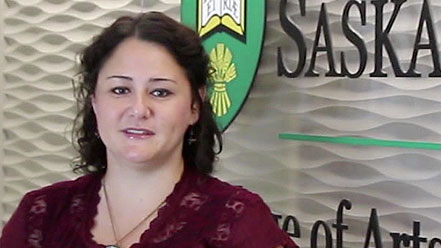Kelly Foley
Neighbourhoods and University Attendance
What relationships exist between family background, youth skills and success in the labour market?
Kelly Foley, who studies the economics of education in Canada with the Department of Economics at the University of Saskatchewan, poses this question and more in her research.
One of her research projects examines the relationship between neighbourhoods and university participation. She explores whether young Canadians’ decisions to attend university are affected by the adults who live in their neighbourhoods, and more specifically, the fraction of adults who have earned a bachelor’s degree. Using data from a survey that followed thousands of Canadian youth from age 15 to age 21, Dr. Foley has discovered that the impact of neighbourhoods depends on both youth’s reading skills and their family background.
Growing up in more educated neighbourhoods has virtually no effect on youth from highly educated, higher income families as well as youth from less-educated, low-income families. Between these two extremes—parents who have high school diplomas and median income— neighbourhoods can affect a youth’s chances of attending university, but only those youth who scored above the median on a standardized reading test. This finding is important because it suggests that some highly skilled Canadians are less likely to pursue university because of their family and neighbourhood.
Dr. Foley won the Robert Mundell Prize with her article “Can Neighbourhoods Change the Decisions of Youth on the Margins of University Participation?” in the February 2012 issue of the Canadian Journal of Economics. The prize is awarded to the young author of the top judged paper published in the Canadian Journal of Economics from the previous calendar year.
